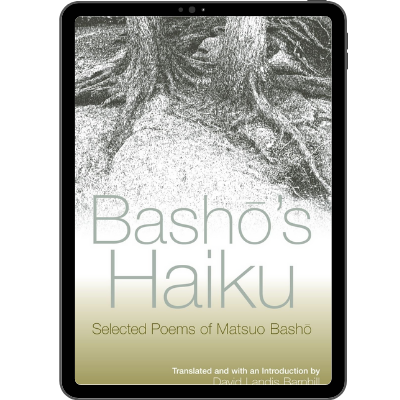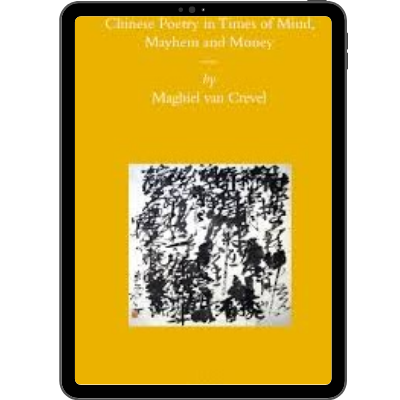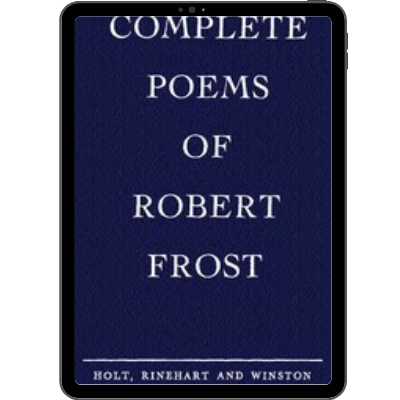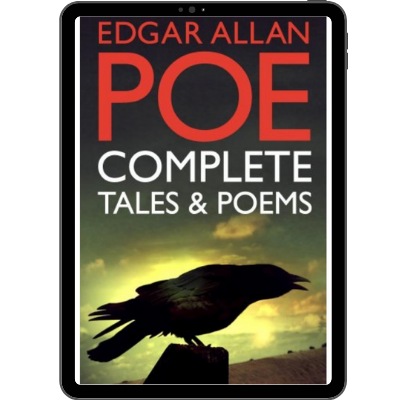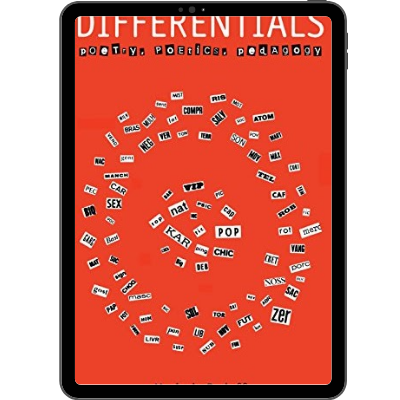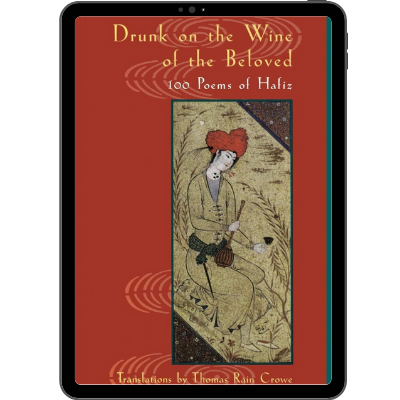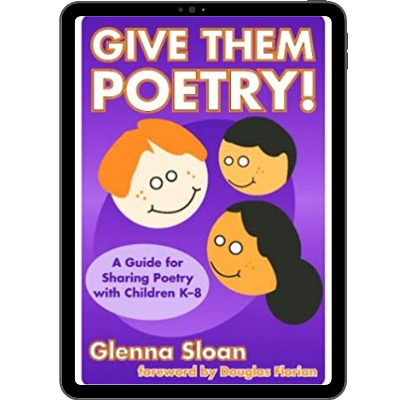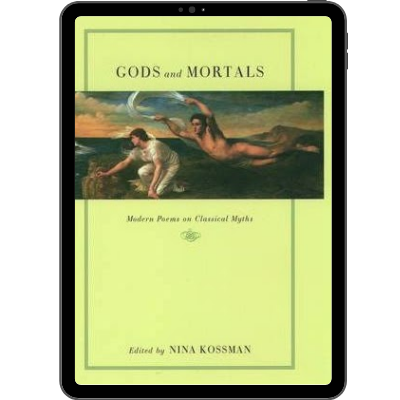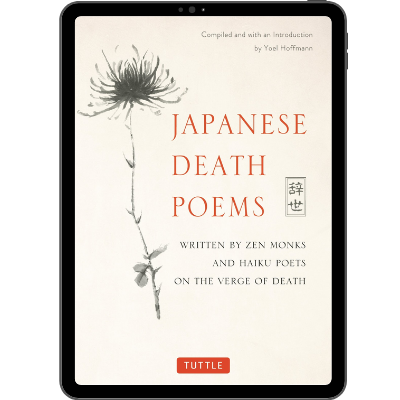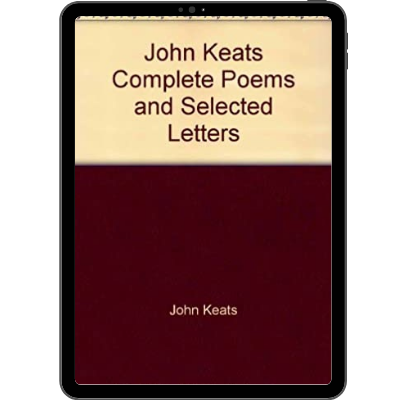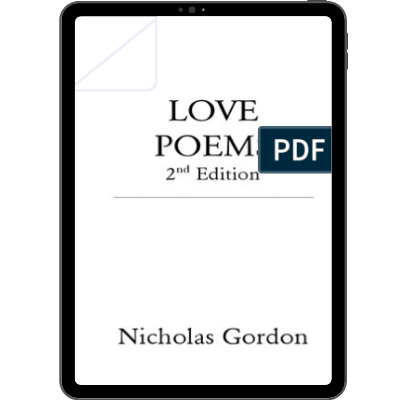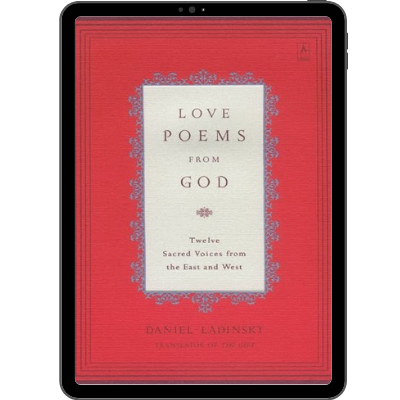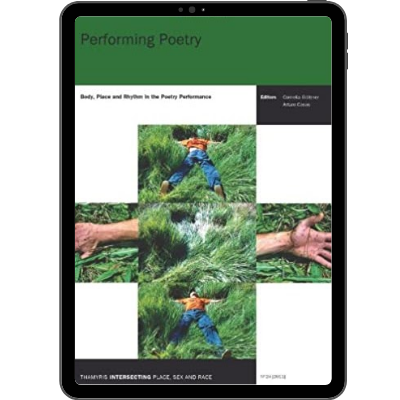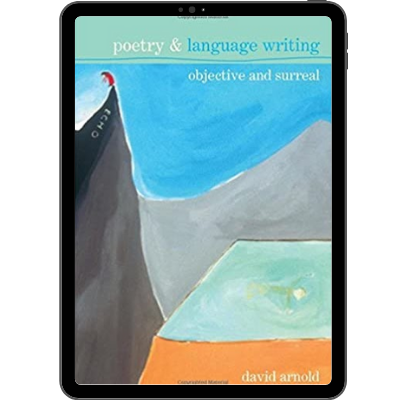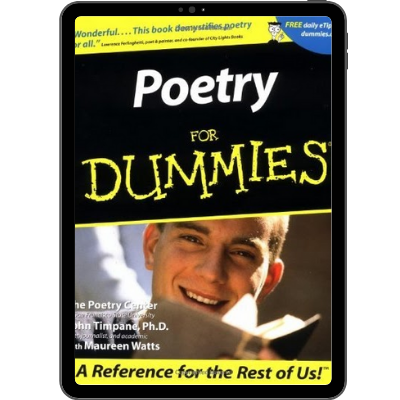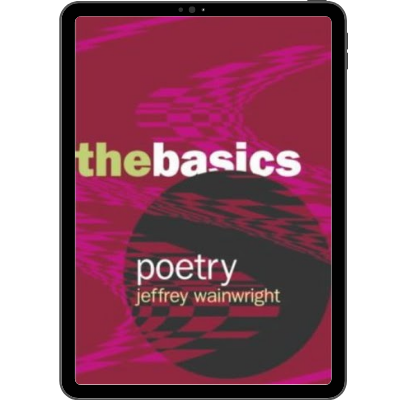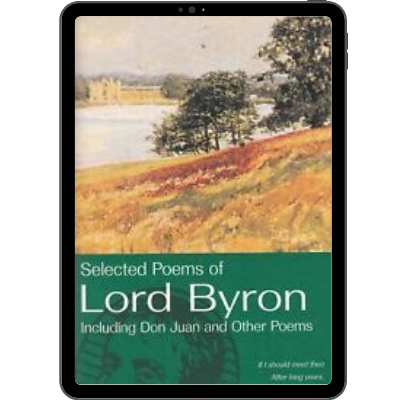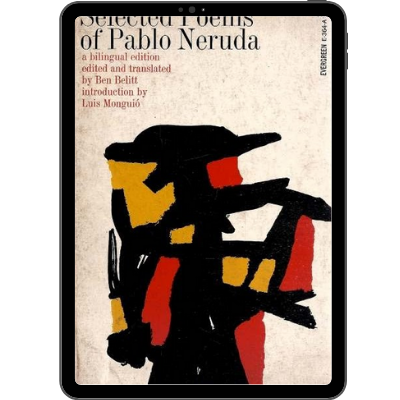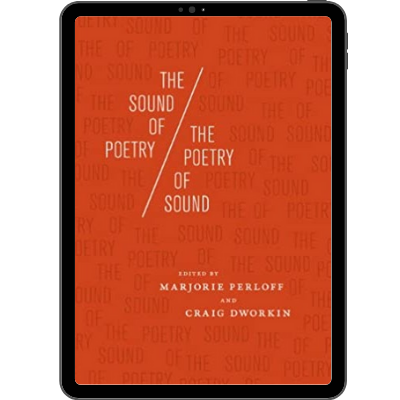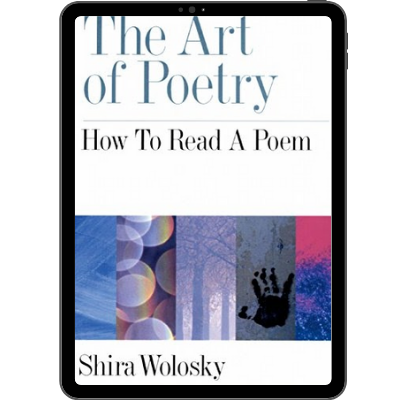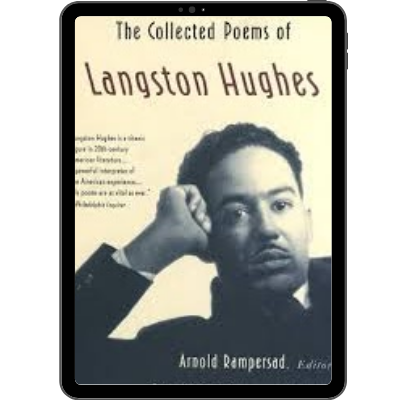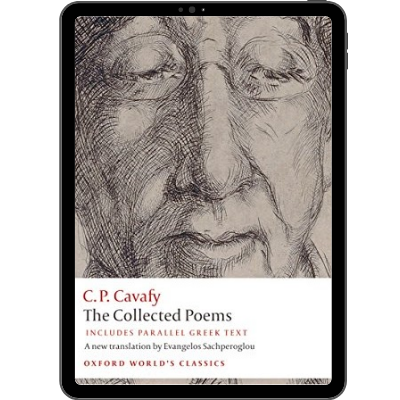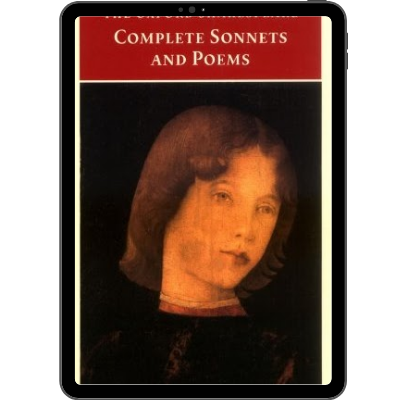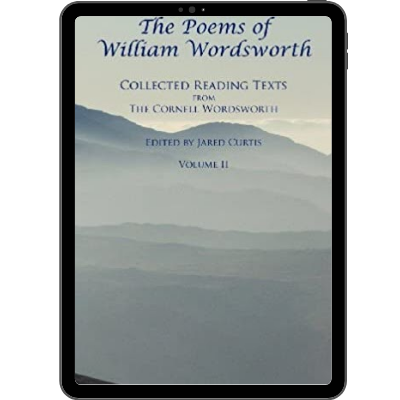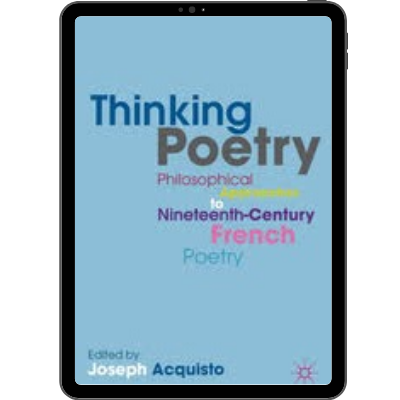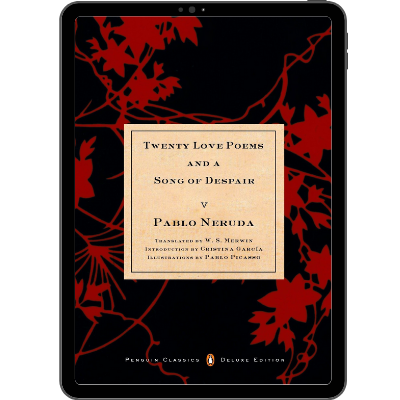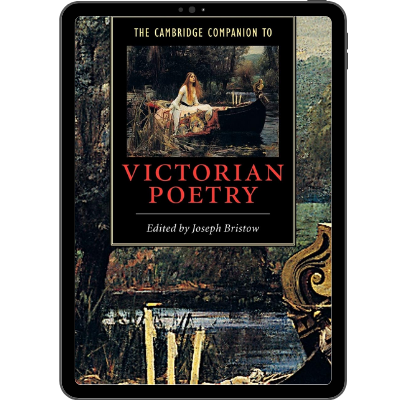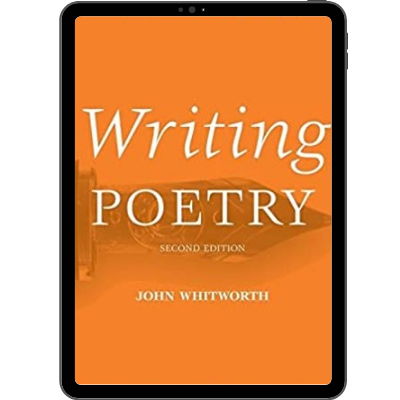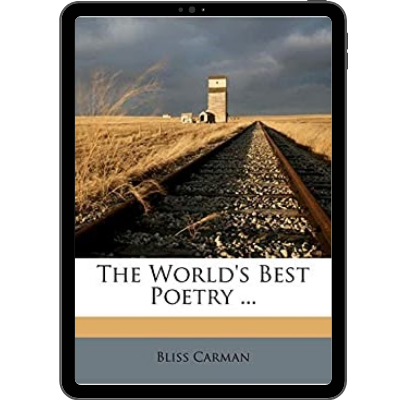Poetry
Bending the Bow traces the development of African love poetry from antiquity to modernity while establishing a cross-millennial dialogue. The anonymously written love poems fromPharaonic Egypt that open the anthology both predate Biblical love poetry and reveal the longevity of written love poetry in Africa. The middle section is devoted to sung love poetry from all regions of the continent. These great works serve as the foundation for modern poetry and testify to love poetry’s omnipresence in Africa. The final section, showcasing forty-eight modern African poets, celebrates the genre’s continuing vitality. Among those represented are Muyaka bin Hajji and Shaaban Robert,two major Swahili poets; Gabriel Okara, the innovative though underrated Nigerian poet; Léopold Sédar Senghor, the first president of Senegal and a founder of the Negritude Movement in francophone African literature; Rashidah Ismaili from Benin; Flavien Ranaivo from Madagascar; and Gabeba Baderoon from South Africa.
Basho's Haiku offers the most comprehensive translation yet of the poetry of Japanese writer Matsuo Basho (1644–1694), who is credited with perfecting and popularizing the haiku form of poetry. One of the most widely read Japanese writers, both within his own country and worldwide, Basho is especially beloved by those who appreciate nature and those who practice Zen Buddhism. Born into the samurai class, Basho rejected that world after the death of his master and became a wandering poet and teacher. During his travels across Japan, he became a lay Zen monk and studied history and classical poetry. His poems contained a mystical quality and expressed universal themes through simple images from the natural world.
A captivating, beautifully illustrated, one-of-a-kind color compendium of the flowers, fruits, herbs, trees, seeds, and grasses cited in the works of the world’s greatest playwright, William Shakespeare, accompanied by their companion quotes from all of his plays and poems. With a foreword by Dame Helen Mirren—the first foreword she has ever contributed.In this striking compilation, Shakespeare historian Gerit Quealy and respected Japanese artist Sumié Hasegawa combine their knowledge and skill in this first and only book that examines every plant that appears in the works of Shakespeare.
Few writers have so brilliantly and poignantly conjured the desperation and absurdity of ordinary life as Charles Bukowski. Resonant with his powerful, perceptive voice, his visceral, hilarious, and transcendent poetry speaks to us as forcefully today as when it was written. Encompassing a wide range of subjects—from love to death and sex to writing—Bukowski’s unvarnished and self-deprecating verse illuminates the deepest and most enduring concerns of the human condition while remaining sharply aware of the day to day.
Groundbreaking contribution to scholarship, well-suited to classroom use in that it combines rigorous analysis with a lively style. Covering the period from the 1980s to the present, it is organized around the notions of text, context and metatext, meaning poetry, its socio-political and cultural surroundings, and critical discourse in the broadest sense.
Notley explores the work of second-generation New York School poets and their allies: Ted Berrigan, Anne Waldman, Joanne Kyger, Ron Padgett, Lorenzo Thomas, and others. These essays and reviews are among the first to deal with a generation of poets notorious for their refusal to criticize and theorize, assuming the stance that "only the poems matter." The essays are characterized by Notley's strong, compelling voice, which transfixes the reader even in the midst of professional detail. Coming After revives the possibility of the readable book of criticism.
A feast for lovers of American literature-the work of our greatest poet, redesigned and relaunched for a new generation of readers.Nopoet is more emblematically American than Robert Frost. From "The Road Not Taken" to "Stopping by Woods on a Snowy Evening," he refined and even defined our sense of what poetry is and what it can do. T. S. Eliot judged him "the most eminent, the most distinguished Anglo-American poet now living," and he is the only writer in history to have been awarded four Pulitzer Prizes.
Edgar Allan Poe is credited with having pioneered the short story, having perfected the tale of psychological horror, and having revolutionized modern poetics.The entirety of Poe's body of imaginative work encompasses detective tales, satires, fables, fantasies, science fiction, verse dramas, and some of the most evocative poetry in the English language. This Collectible Edition omnibus collects all of Poe's fiction and poetry in a single volume, including "The Fall of the House of Usher," "The Tell-Tale Heart," "The Pit and the Pendulum,." "The Raven," "Annabel Lee," the full-length novel The Narrative of Arthur Gordon Pym of Nantucket, and much more.
Discussing the work of more than 60 poets from the US, UK, Ireland, Australia, New Zealand and the Caribbean, from Sujata Bhatt to M. Philip NourbeSe and from John Ashbery to Eliot Weinberger, Nerys Williams guides students through the key ideas and movements in the study of poetry today. With reference to original manifestos and web-based experiments, as well as the role of information culture in shaping and distributing poetry globally this book engages with the full vitality of the contemporary poetry scene.
In Differentials, Perloff explores and defends her belief in the power of close reading, a strategy often maligned as reactionary in today's critical climate but which, when construed differentially, is vital, she believes, to any true understanding of a literary or poetic work, irrespective of how traditional or experimental it is. Perloff also examines key issues in modernism, from Eliot's conservative poetics and Pound's nominalism to translation theory (Wittgenstein, Eugene Jolas, Haroldo de Campos), and the contemporary avant garde, as represented by writers like Susan Howe, Tom Raworth, Rae Armantrout, Ron Silliman, Ronald Johnson, Caroline Bergvall, and Kenneth Goldsmith
The Persian Sufi poet Hafiz (1326-1390) is a towering figure in Islamic literature-and in spiritual attainment as well. Known for his profound mystical wisdom combined with a sublime sensuousness, Hafiz was the supreme master of a poetic form known as the ghazal (pronounced "guzzle"), an ode or song consisting of rhymed couplets celebrating divine love. In this selection of his poems, wine and the intoxication it brings are the image that expresses this love in all its joyful abandon, painful longing, bewilderment, and surrender. Through ninety-five free-verse renditions, we gain entry into the mystical world of Hafiz's Winehouse, with its happy minstrels, its bewitching Winebringer, and its companions in drunken longing whose hearts cry out, "More wine!" Thomas Rain Crowe brings a new dimension to our growing appreciation of Hafiz and his wise drunkard's advice to the seekers of God: In this world of illusion, take nothing other than this cup of wine; In this playhouse, don't play any games but love.
Edgar Allan Poe remains the unsurpassed master of works of mystery and madness in this outstanding collection of Poe's prose and poetry are sixteen of his finest tales, including "The Tell-Tale Heart", "The Murders in the Rue Morgue", "The Fall of the House of Usher," "The Pit and the Pendulum," "William Wilson," "The Black Cat," "The Cask of Amontillado," and "Eleonora". Here too is a major selection of what Poe characterized as the passion of his life, his poems - "The Raven," "Annabel Lee," Ulalume," "Lenore," "The Bells," and more, plus his glorious prose poem "Silence - A Fable" and only full-length novel, The Narrative of Arthur Gordon Pym.
Only eleven of Emily Dickinson's poems were published prior to her death in 1886; the startling originality of her work doomed it to obscurity in her lifetime. Early posthumous published collections -- some of them featuring liberally "edited" versions of the poems -- did not fully and accurately represent Dickinson's bold experiments in prosody, her tragic vision, and the range of her intellectual and emotional explorations. Not until the 1955 publication of The Complete Poems of Emily Dickinson, a three-volume critical edition compiled by Thomas H. Johnson, were readers able for the first time to assess, understand, and appreciate the whole of Dickinson's extraordinary poetic genius.
This lively book offers a host of ways for teachers to bring poetry and children together in their classrooms. Based on the premise that poetry and verse, properly presented, promote literacy, this practical handbook includes: introductions to children's poets and their poetry, advice on poetry writing from the poets themselves, examples of children's poetry writing, and methods of presenting poetry to students of any age.
For centuries, poets have looked into the mirror of classical myth to show us the many ways our emotional lives are still reflected in the ancient stories of heroism, hubris, transformation, and loss that myths so eloquently tell. Now, in Gods and Mortals: Modern Poems on Classical Myths, we have the first anthology to gather the great 20th century myth-inspired poems from around the world.
The Indo-Europeans, speakers of the prehistoric parent language from which most European and some Asiatic languages are descended, most probably lived on the Eurasian steppes some five or six thousand years ago. Martin West investigates their traditional mythologies, religions, and poetries, and points to elements of common heritage. In The East Face of Helicon (1997), West showed the extent to which Homeric and other early Greek poetry was influenced by Near Easterntraditions, mainly non-Indo-European. His new book presents a foil to that work by identifying elements of more ancient, Indo-European heritage in the Greek material. Topics covered include the status of poets and poetry in Indo-European societies; metre, style, and diction; gods and other supernatural beings,from Father Sky and Mother Earth to the Sun-god and his beautiful daughter, the Thunder-god and other elemental deities, and earthly orders such as Nymphs and Elves; the forms of hymns, prayers, and incantations; conceptions about the world, its origin, mankind, death, and fate; the ideology of fame and of immortalization through poetry; the typology of the king and the hero; the hero as warrior, and the conventions of battle narrative.
Although the consciousness of death is, in most cultures, very much a part of life, this is perhaps nowhere more true than in Japan, where the approach of death has given rise to a centuries-old tradition of writing jisei, or the "death poem." Such a poem is often written in the very last moments of the poet's life.
I think I shall be among the English Poets after my death,' John Keats soberly prophesied in 1818 as he started writing the blankverse epic Hyperion. Today he endures as the archetypal Romantic genius who explored the limits of the imagination and celebrated the pleasures of the senses but suffered a tragic early death. Edmund Wilson counted him as 'one of the half dozen greatest English writers,' and T. S. Eliot has paid tribute to the Shakespearean quality of Keats's greatness. Indeed, his work has survived better than that of any of his contemporaries the devaluation of Romantic poetry that began early in this century.
he love poems in this book are selected from Nicholas Gordon's Web site, Poems for Free, at http: //www.poemsforfree.com. They may be used free for any personal or non-commercial purpose.Many were written by request, and therefore this selection represents a kaleidoscope of voices and points of view speaking through a single poetic sensibility
In this luminous collection, Daniel Ladinsky—best known for his bestselling interpretations of the great Sufi poet Hafiz—brings together the timeless work of twelve of the world’s finest spiritual writers, six from the East and six from the West. Once again, Ladinsky reveals his talent for creating profound and playful renditions of classic poems for a modern audience.
A comprehensive view of the major literary movements in Western history - An introduction by Harold Bloom and a selection of critical essays provides scholarly analysis on the major writers and works that defined each literary period - Features a chronology of important cultural, literary, and political events that helped shape each literary period.
Jalal al-Din Rumi (1207–73), legendary Persian Muslim poet, theologian, and mystic, wrote poems acclaimed through the centuries for their powerful spiritual images and provocative content, which often described Rumi’s love for God in romantic or erotic terms. His vast body of work includes more than three thousand lyrics and odes. This volume includes four hundred poems selected by renowned Rumi scholar A. J. Arberry, who provides here one of the most comprehensive and adept English translations of this enigmatic genius. Mystical Poems is the definitive resource for anyone seeking an introduction to or an enriched understanding of one of the world’s greatest poets.
Over the past decades, the poetry performance has developed into an increasingly popular, diverse, and complex art form. In theoretical and critical discourse, it is referred to as performance poetry, spoken word poetry, and polipoesía; some theorists argue that it is an independent poetic genre, others treat it as a contemporary manifestation of oral poetry or of the poetry recital. The essays collected in this volume take up the challenge that the poetry performance poses to literary theory. Coming from a variety of disciplines, including Literary Studies, Theater Studies, and Area Studies, contributors develop new approaches and analytical categories for the poetry performance.
Language Poetry, Language Writing, L=A=N=G=U=A=G=E writing—no matter the moniker, the impact of the movement and its particular pedigree of theory-conscious poetics, postmodern aesthetics, and non-academic stance cannot be denied. In this timely volume, David Arnold not only provides a means for coming to terms with this influential mode of writing and its ongoing crisis of representation but also reassesses the complex relationship between language poetry and surrealism, through discussion of some of late twentieth-century’s most innovative poets, including Charles Bernstein, Susan Howe, Michael Palmer, and Barrett Watten.
Sometimes it seems like there are as many definitions of poetry as there are poems. Coleridge defined poetry as “the best words in the best order.” St. Augustine called it “the Devil’s wine.” For Shelley, poetry was “the record of the best and happiest moments of the happiest and best minds.” But no matter how you define it, poetry has exercised a hold upon the hearts and minds of people for more than five millennia. That’s because for the attentive reader, poetry has the power to send chills shooting down the spine and lightning bolts flashing in the brain ― to throw open the doors of perception and hone our sensibilities to a scalpel’s edge.
Poetry, Language, Thought collects Martin Heidegger's pivotal writings on art, its role in human life and culture, and its relationship to thinking and truth. Essential reading for students and anyone interested in the great philosophers, this book opens up appreciation of Heidegger beyond the study of philosophy to the reaches of poetry and our fundamental relationship to the world. Featuring "The Origin of the Work of Art," a milestone in Heidegger's canon, this enduring volume provides potent, accessible entry to one of the most brilliant thinkers of modern times.
Now in its second edition, Poetry: The Basics demystifies the traditions and forms of the world of poetry for all those who find it daunting or bewildering. Covering a wide range of poetic voices from Chaucer to children's rhymes, song lyrics and the words of contemporary poets, this book will help readers to appreciate poetry by examining.
Reinventing Romantic Poetry offers a new look at the Russian literary scene in the nineteenth century. While celebrated poets such as Aleksandr Pushkin worked within a male-centered Romantic aesthetic—the poet as a bard or sexual conqueror; nature as a mother or mistress; the poet’s muse as an idealized woman—Russian women attempting to write Romantic poetry found they had to reinvent poetic conventions of the day to express themselves as women and as poets. Comparing the poetry of fourteen men and fourteen women from this period, Diana Greene revives and redefines the women’s writings and offers a thoughtful examination of the sexual politics of reception and literary reputation.
Described as 'Mad, bad and dangerous to know' by one of his lovers, Lady Caroline Lamb, Lord Byron was the quintessential Romantic. Flamboyant, charismatic and brilliant, he remains almost as notorious for his life - as a political revolutionary, sexual adventurer and traveller - as he does for his literary work. Yet he produced some of the most daring and exuberant poetry of the Romantic age, from 'To Caroline' and 'To Woman' to the satirical English Bards and Scotch Reviewers, his exotic Eastern tales and the colourful narrative of Childe Harold's Pilgrimage, the work that made him famous overnight and gave birth to the idea of the brooding Byronic hero.
In his long life as a poet, Pablo Neruda succeeded in becoming what many poets have aspired to but never achieved: a public voice, a voice not just for the people of his country but for his entire continent. Widely translated, he probably reached more readers than any poet in history; justly so, for, as he often said, his "poet's obligation" was to become a voice for all those who had no voice, an aspiration that stemmed from his long-time commitment to the communist faith.
As Poet Laureate, Pinsky is one of America's best spokesmen for poetry. In this fascinating book, he explains how poets use the "technology" of poetry--its sounds to create works of art that are "performed" in us when we read them aloud.
He devotes brief, informative chapters to accent and duration, syntax and line, like and unlike sounds, blank and free verse. He cites examples from the work of fifty different poets--from Shakespeare, Donne, and Herbert to W. C. Williams, Frost, Elizabeth Bishop, C. K. Williams, Louise Glück, and Frank Bidart.
A uniquely comprehensive, step-by-step introduction to poetic form, The Art of Poetry moves progressively from smaller units such as the word, line, and image, to larger features such as verse forms and voice.In fourteen engaging, eloquently written chapters, Wolosky explores in depth how poetry works while offering brilliant readings of some of the finest lyric poetry in the English and American traditions.
Modernist poems are some of the twentieth-century's major cultural achievements, but they are also hard work to read. This wide-ranging introduction takes readers through modernism's most famous poems and some of its forgotten highlights to show why modernists thought difficulty and disorientation essential for poetry in the modern world. In-depth chapters on Pound, Eliot, Yeats and the American modernists outline how formal experiments take on the new world of mass media, democracies, total war and changing religious belief.
Luís de Camões is world famous as the author of the great Renaissance epic The Lusíads, but his large and equally great body of lyric poetry is still almost completely unknown outside his native Portugal. In The Collected Lyric Poems of Luís de Camões, the award-winning translator of The Lusíads gives English readers the first comprehensive collection of Camões's sonnets, songs, elegies, hymns, odes, eclogues, and other poems--more than 280 lyrics altogether, all rendered in engaging verse.
Panning five decades and comprising 868 poems (nearly 300 of which have never before appeared in book form), this magnificent volume is the definitive sampling of a writer who has been called the poet laureate of African America--and perhaps our greatest popular poet since Walt Whitman. Here, for the first time, are all the poems that Langston Hughes published during his lifetime, arranged in the general order in which he wrote them and annotated by Arnold Rampersad and David Roessel.
C. P. Cavafy (1863-1933) lived in relative obscurity in Alexandria, and a collected edition of his poems was not published until after his death. Now, however, he is regarded as the most important figure in twentieth-century Greek poetry, and his poems are considered among the most powerful in modern European literature. Here is an extensively revised edition of the acclaimed translations of Edmund Keeley and Philip Sherrard, which capture Cavafy's mixture of formal and idiomatic use of language and preserve the immediacy of his frank treatment of homosexual themes, his brilliant re-creation of history, and his astute political ironies.
Yet it is only this century that Donne has been indisputably established as a great poet—and even, many feel, the greatest love poet of them all. Jonson went on to remark that 'That Donne, for not keeping of an accent, deserved hanging', yet Donne's rhythms, once thought 'unmusical' are now recognized as the natural rhythms of the speaking voice; his 'eccentricity' as a complex self-doubt; his 'obscurity' the reflection of a brilliantly learned and allusive mind. Poets such as Eliot and Empson have found Donne's poetry profoundly attuned to our modern age, while Yeats' glowing comment will always be true: 'the intricacy and subtlety of his imagination are the length and depth of the furrow made by his passion.'
This is the only fully annotated and modernized edition to bring together Shakespeare's sonnets as well as all his poems (including those attributed to him after his death) in one volume. A full introduction discusses his development as a poet, and how the poems relate to the plays, and detailed notes explain the language and allusions. While accessibly written, the edition takes account of the most recent scholarship and criticism.
Belonging in the immortal company of the great works of literature, Dante Alighieri’s poetic masterpiece, The Divine Comedy, is a moving human drama, an unforgettable visionary journey through the infinite torment of Hell, up the arduous slopes of Purgatory, and on to the glorious realm of Paradise—the sphere of universal harmony and eternal salvation.
Translated into fifty languages, the poetry of Tomas Transtromer has had a profound influence around the world, an influence that has steadily grown and has now attained a prominence comparable to that of Pablo Neruda's during his lifetime. But if Neruda is blazing fire, Transtromer is expanding ice. The Great Enigma: New Collected Poems gathers all the poems Tomas Transtromer has published, from his distinctive first collection in 1954, 17 Poems, through his epic poem Baltics ("my most consistent attempt to write music"), and The Sad Gondola, published six years after he suffered a debilitating stroke in 1990 ("I am carried in my shadow / like a violin / in its black case."), to his most recent slim book, The Great Enigma, published in Sweden in 2004.
William Wordsworth (1771-1850) is the foremost of the English Romantic poets. He was much influenced by the events of the French Revolution in his youth, and he deliberately broke away from the artificial diction of the Augustan and neo-classical tradition of the eighteenth century. He sought to write in the language of ordinary men and women, of ordinary thoughts, sights and sounds, and his early poetry represents this fresh approach to his art.
Original and reprinted essays by contemporary poets who have spent time abroad address questions of estrangement, identity, and home. These reflections represent a diverse atlas of experience from authors such as Kazim Ali, Elizabeth Bishop, Naomi Shihab Nye, Nick Flynn, Yusef Komunyakaa, Claudia Rankine, Alissa Valles, and many others.Following these literary reflections is a roundtable conversation among fourteen poets as well as a section that provides practical re-sources for finding work abroad, applying for fellowships and residencies, funding a trip, obtaining proper travel documents, and attending to other cultural considerations. This inspiring, useful book addresses concerns relevant to any American writer preparing to go abroad, already traveling, just returning, or simply dreaming of the faraway.
When it appeared in 1924, this work launched into the international spotlight a young and unknown poet whose writings would ignite a generation. W. S. Merwin’s incomparable translation faces the original Spanish text. Now in a black-spine Classics edition with an introduction by Cristina Garcia, this book stands as an essential collection that continues to inspire lovers and poets around the world.
This Companion to Victorian Poetry provides an introduction to many of the pressing issues that absorbed the attention of poets from the 1830s to the 1890s. It introduces readers to a range of topics - including historicism, patriotism, prosody, and religious belief. The thirteen specially-commissioned chapters offer insights into the works of well-known figures such as Matthew Arnold, Robert Browning and Alfred Tennyson, and the writings of women poets - like Michael Field, Amy Levy and Augusta Webster - whose contribution to Victorian culture has in more recent years been acknowledged by modern scholars.
This is a positive, practical handbook packed with advice, exercises and information. Beginning with a definition of what makes poetry, the author goes on to describe the different forms, how and what to start writing, finding an audience, and getting published. John Whitworth encourages the poet to write from experience and by showing poet's drafts demonstrates how the process from tentative start to finished poem is achieved. This new edition has been revised throughout and includes new chapters on poetry on the Internet, performance poetry and poetry festivals.
This is a reproduction of a book published before 1923. This book may have occasional imperfections such as missing or blurred pages, poor pictures, errant marks, etc. that were either part of the original artifact, or were introduced by the scanning process. We believe this work is culturally important, and despite the imperfections, have elected to bring it back into print as part of our continuing commitment to the preservation of printed works worldwide. We appreciate your understanding of the imperfections in the preservation process, and hope you enjoy this valuable book.
SEDE
Avenida Joaquim Nabuco, 1286
Centro - Manaus - AM
CEP: 69020-030
Tel: (92) 3198-7100
UNIDADE MANAUARA
Avenida Mário Ipiranga, 1300
Adrianópolis - Manaus - AM
CEP: 69057-002
Tel: (92) 3198-7100
EDUCATION USA
Contatos:
Isa Akel: [email protected]
Soraya Moresi: [email protected]
Tel: (92) 3198-7119










Siga-nos nas redes sociais
© 2022 ICBEU Manaus - Todos os direitos reservados

